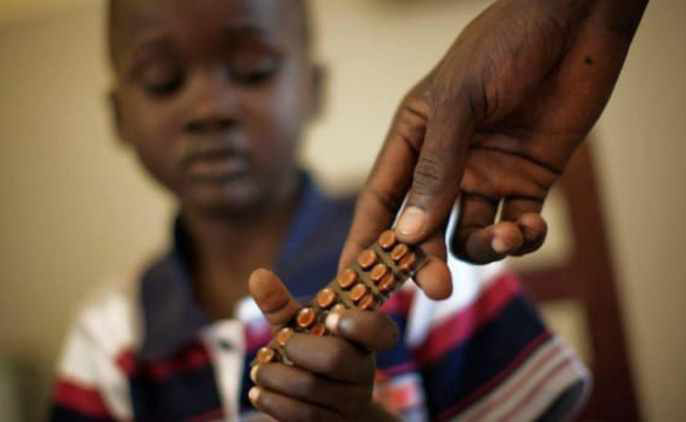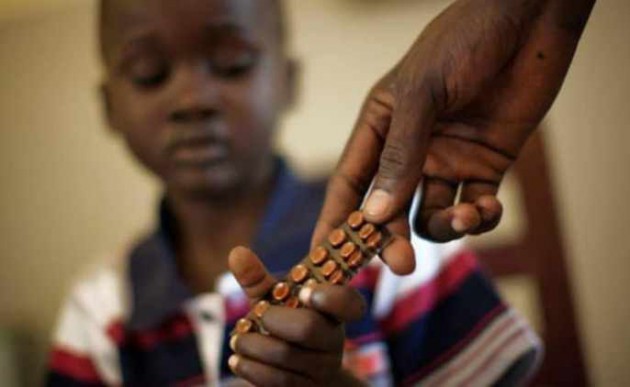Poor nutrition hindering TB treatment

Sharleen Mohammed Features Correspondent
At Simona farm in Bindura, Mashonaland Central, a dark corridor leads to Thandi Mangwiro’s one-roomed home, where she lives with her family of four.
The mud walled building, reinforced with rusty iron sheets, has one window and the only source of natural light in the space she rents comes from a tiny transparent panel installed in the roof.
Living conditions like these coupled with poor ventilation are cited as major contributing factors to the transmission of tuberculosis (TB).
According to World Health Organisation (WHO), TB is an infectious bacterial disease characterised by the growth of nodules (tubercles) in the tissues especially the lungs.
Thandi’s six-year-old daughter, Yolanda had been coughing incessantly for a long time.
She attributed her daughter’s ailment to witchcraft.
Thandi had lost track of how many times she visited a traditional healer, but her efforts were fruitless.
Her daughter was diagnosed with TB, after several failed attempts to treat for other possible infections.
She was put on a six-month course of TB treatment, which required her to take six tablets a day after eating food.
“One of the medicines was difficult to swallow because of its bitterness so I had to dissolve it in water and make her drink the water instead for the first two months,” said Thandi.
Apart from the medicine’s bitterness, Yolanda’s adherence to treatment was further compounded by inadequate food as she failed to take her meals before taking medication due to poverty.
“Because we lacked food taking medicines on an empty stomach made her nauseous and very weak so we had to skip medication at instances where she would have not consumed anything,” Thandi explaimed.
Yolanda shared the same fate with Hazel Chatyoka, a 14-year old girl from Mashonaland Central Province.
Hazel who began her TB treatment in December chronicled how she faced a number of challenges chief among them inadequate food, stigma and discrimination impacting negatively on her adherence and the possibly success of her treatment.
“I could not take my tablets at school because my friends kept asking sarcastically what the tablets were for insinuating that I was HIV positive. Fearing discrimination at school, I could not adhere to my prescribed times of taking medication,” said Hazel.
Apart from the stigma and discrimination associated with TB, Hazel added they also didn’t have enough food at home to take along with her medication.
“Sometimes there would be no food at home when I come back from school, also making it impossible for me to take my medication on time.”

Children require good nutrition to ensure their treatment works. – (Picture courtesy of Huffington Post)
Joining her in the six-month treatment is her eight-year-old brother. He is the third in the family to have TB and is also struggling to adhere to his treatment due to inadequate food – which negatively impacts the TB treatment success rate.
According to the Global TB Report 2016, Zimbabwe is listed among the 30 high burdened countries, with a triple burden of TB, TB-HIV and MDR-TB.
Only two years ago in 2015, children represented about 11 percent of all TB cases, with at least one million falling ill with the disease.
In Zimbabwe, among other interventions, good nutrition is encouraged in those taking TB medication.
According to WHO’s report (2016) the high incidence of TB among children is due to vulnerable immune systems either as a result of HIV and AIDS or malnutrition.
It said malnourished children were at risk of falling ill or dying from TB because their immune systems would be weak.
WHO also revealed that malnutrition and TB were both problems of considerable magnitude in most under-developed regions.
“Malnutrition can lead to secondary immunodeficiency that increases the host’s susceptibility to infection,” reads the WHO report.
Furthermore, the report indicates that malnourished TB patients have delayed recovery and higher mortality rates than well-nourished patients.
Of late, lack of adequate food has been haunting many TB patients in Zimbabwe.
Zimbabwe National Network for People Living with HIV and AIDS (ZNNP+) district focal person for Mt Darwin Mrs Phillipah Sabiwa corroborated Thandi and Hazel’s stories saying many other people including children who were either on TB or HIV treatment where defaulting due to inadequate food.
Mrs Sabiwa estimates that nearly half of children from her district on TB treatment have reported challenges with access to food.
“We cannot say how many have necessarily defaulted as a result of inadequate food, but what we know is quiet a sizable number have reported to us during our community visits that they were failing to adhere to treatment without food,” said Mrs Sabiwa.
She added that this coupled with other challenges such as stigma and discrimination associated with TB and bitterness of the pill could impact negatively on the success of TB treatment.
Zimbabwe is targeting to increase the TB treatment success rate from 81 percent reported in 2012 to 90 percent by 2017.
Deputy director for the HIV, AIDS and TB programme in the Ministry of Health and Child Care Dr Charles Sandy said TB treatment in children was still a huge challenge in Zimbabwe.
He however said there was need for a strict adherence to treatment by all TB patients as this was the most secure way for them to avoid any further complications.
“Once diagnosed with TB, patients on treatment are encouraged to adhere to medication because TB is curable,” said Dr Sandy.
Dr Sandy said to encourage children to stick to their medications, WHO recently improved formulations flavouring them to improve palatability.
He added that Zimbabwe is also in the process of introducing these formulations in public health facilities to also increase TB treatment and outcomes in children.
The International Union Against Tuberculosis and Lung Disease country director Dr Christopher Zishiri said Government and its partners must intensify efforts in TB screening to increase case detection especially in vulnerable communities.
Dr Zishiri said since Zimbabwe was in the top 30 high TB burdened countries, there was need to intensify efforts to find and treat all TB cases for the country to meet the target of ending TB by 2030.











Comments